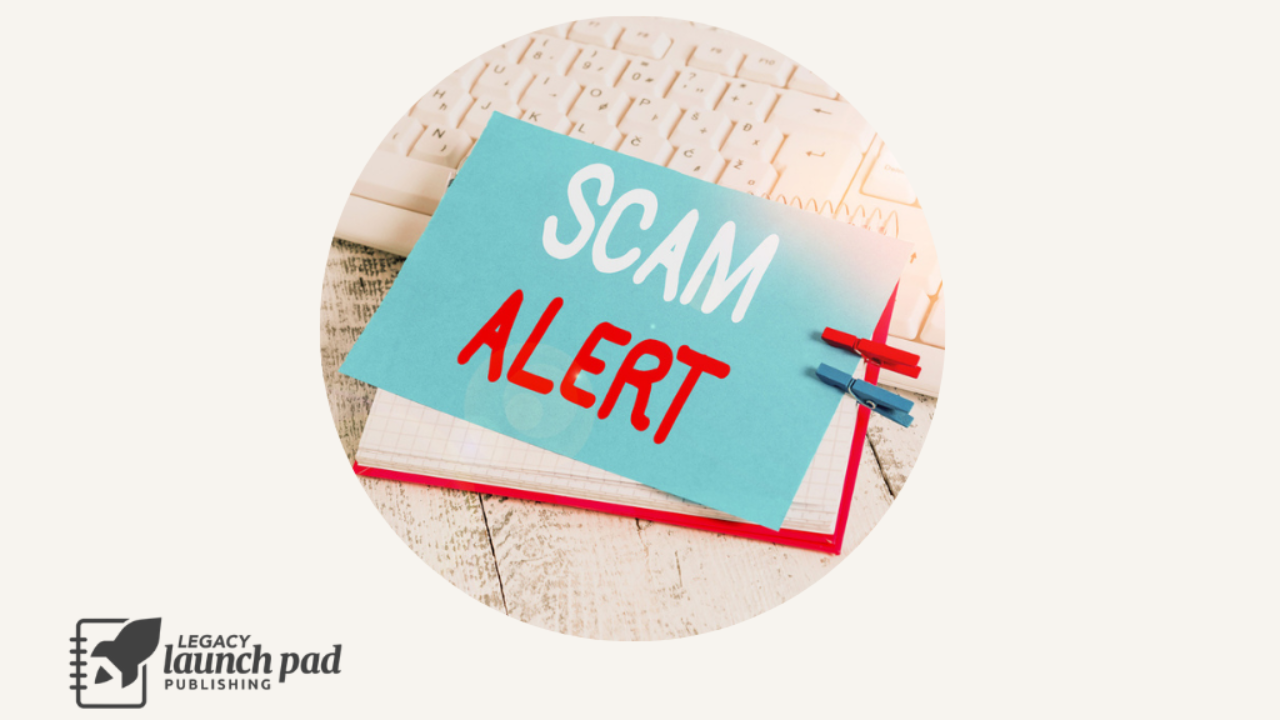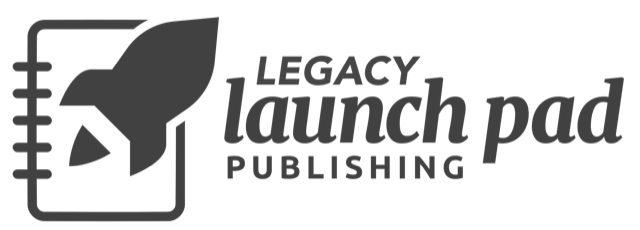
OMG! I Was Scammed by a Maybe AI Book Marketer
I think of myself as someone who’s tough to scam.
If I get a text from “Apple” or “Amazon” about a “suspicious purchase,” I google the exact phrasing and usually find that people on Reddit who have already written about how it’s a scam. I’ve never been catfished. I delete every email offer to grow my Instagram or buy my business. I can always tell when someone’s trying to send me into their funnel by offering me something too good to be true that I know will result in an aggressive sales campaign if I take them up on it.
But, oh Substack readers, I fell prey. And to a book “specialist,” no less! It’s not quite the NY Mag financial columnist falling for a $50k scam but it’s in the same stratosphere.
It all started with an email with a very savvy subject line: Why Party Girl Still Deserves the Spotlight.
Coming at me with my favorite book I wrote that I felt never got the spotlight it deserved? She had my attention! Plus she offered GoodReads promo, which I know is more important than ever because AI crawlers love it so it’s something I’ve been wanting to add as a service for Legacy Launch Pad clients. (Since I’m lucky to employ a publishing guinea pig—myself—I always try something myself before sharing it with clients.)
In addition to GoodReads promo, she was offering SEO work for the book, as well as efforts to align the book with other Quit Lit memoirs. I wrote her that I was not only in but also, if things worked out, I could potentially hire her to do this for Legacy Launch Pad books.
She said great, she’d send me a detailed breakdown. Which was weird. I mean, hadn’t her email been a detailed breakdown? But I said sure. She broke it down again. I asked for more info. Another email and finally I got the price: between $274-$774, depending on the package I chose. Even though I was recognizing all the tactics of manipulative marketers—namely, get the person to commit a few times before telling them the price so that they’re emotionally involved (and also ending prices in $4 though why that works, I have no idea)—I signed up for the middle package. But I really should have jumped ship after the next email, where she (Traci B. Johnson and yes, Traci with an i, yes) wrote:
Rachael just sent over the Upwork contract for the plan we discussed.
And indeed Rachael had indeed sent it over.
Um, Rachael (with an ae)? Upwork?
I wrote Traci back and said I didn’t want to do this through Upwork and that if I hired her to work for my company, I would never do that. She assured me that we would just do this “first one” through Upwork.
I did not ask who Rachael was; Traci was throwing too much information by me for me to ask. I think that was the point.
I asked Traci if she had a website and she sent me a link to this—a free Wordpress site with a foreign phone number and [email protected] as the email address (ie, neither Traci with an i nor Rachael with an ae).
The Upwork contract stipulated that I pay the entire fee upfront. Because every Upwork contract I’ve had before involved paying through milestones, I wrote Traci back and asked about it. She wrote: Thanks for checking! I usually structure this as full payment upfront so I can prioritize the project fully and focus on delivering high-quality work without delays.
Traci was starting to sound kinda AI-esque. I noticed every email started with a very grateful first line, even if what I was asking was something like, “Why are you asking me to pay you upfront when I don’t even know you?” Instead of confronting her about how weird she was sounding, I asked if she could at least break it into two payments, so she changed the first payment to $350 (three-quarters up front also seemed strange but whatever, I just wanted to get started). I told her I thought this whole thing was weird and she thanked me for my honesty, apologized for any confusion and told me how much she wanted to support my books in a way that “aligned with my values.”
Finally we got to the work and I realized when she sent me the “keyword optimized” book description for Party Girl that she had in no way read the book. I didn’t really care; I’ve been interviewed on the Today show about my books with full awareness that the host hadn’t read it. But I also know a lot about keyword research for books so I tried to get Traci to explain what her keyword research process was and/or the software she’d used to come up with the keywords. I figured if it was good, I could incorporate it into how we do it at LLP. But she was vague in her response so I just figured, whatever, let’s get onto the Goodreads part.
She then wrote me that she needed my “Fiction Flick.” I’d never heard of a Fiction Flick so after googling and finding nothing, I asked her what it was. She explained that it was a 15-second video teaser.
I said I could have my team create one and she thanked me for my “thoughtful response” and said that to “simplify things,” she’d be happy to do it for me.
I thanked her. Then she sent me an email breaking down what she would do—for an additional $521. But, she explained, she wasn’t offering just a basic video—she was offering “a targeted visual marketing asset, crafted specifically for reader engagement, scroll-stopping impact, and conversion-driven promotion.” She talked about how she’d worked with over 55 authors and “if timing or budget is a concern, no worries delays [sic], you’re welcome to pay part of the amount upfront, and I’ll get started right away.”
What’s below is the video she sent me as an example of what she could do. I’m entirely serious.
I said I’d pass and she wrote me, I’m ready to begin the full fiction flick and thumbnail mockup design without delay. You’ll receive a preview of the creative direction tomorrow so you can see the quality and vision firsthand. Feel free to fund Rachael on Upwork at your earliest convenience so we can officially get started.
I asked if she was reading my emails because I’d explained I didn’t want her to do a Fiction Flick for me. She responded of course but she’d already started working on my Fiction Flick since the category and keyword research for my book was so “time-sensitive and crucial to its visibility.”
I asked her what was so time-sensitive about category and keyword research. She responded with some nonsense about “key timing windows.”
Finally I’d had it. I told her that all I’d really wanted was the GoodReads promo. I also said that I found her emails confusing and I was wondering if we could jump on Zoom. That way, I added, we could discuss how she could work with my company. (Yes, I hate Zoom but I knew she would dodge it.) She responded with a lot of gratitude for my request but explained that she was “unable to accommodate Zoom calls due to my current location and project commitments.” She added that she stays focused on “delivering in-depth, strategic work through written communication so as to maintain quality and consistency across all active campaigns.”
That’s when I straight out asked her if she was AI. Seeming offended, she said no, she was a “real publishing professional.” I told her that one minute on Zoom would make me believe her and she responded that we could schedule one for the next day.
I wrote back to schedule a time and she responded: I’m currently in a meeting with an authors am [sic] working with and won’t be able to talk just yet. I truly appreciate your patience and understanding. I’ll be giving you a call in the next 1 hour as scheduled. Looking forward to speaking with you then!
“As scheduled”? Also, um, how was she going to call someone whose number she didn’t have? Plus, as someone who stays focused on “written communication,” how could she be in a meeting with “an authors” she was working with?
Only THEN did I look at her/Rachael’s Upwork reviews. Four reviews total and one says “1 star: I di [sic] not know the relationship between Rachael and my main contact "Debra" but one or both of them are not who they say they are.
I told her I was done wasting time, that she could just refund me for everything but the book description and she responded that she’d done three weeks of “consistent work, including my time, energy, and personal investment,” working “day and night to deliver value” and what’s more, she’d “already completed key deliverables.”
She went on: Requesting a refund at this point disregards the substantial time, effort, and money I’ve put into your project.
It went on from there. Then she sent another email that said in addition to the description, she had also completed:
10 targeted and curated Goodreads Listopia listings to increase your book’s discoverability
Comprehensive keyword research and analysis tailored to your genre and audience
Ongoing work on category optimization to improve your book’s visibility on Amazon
She went on…
I was also preparing to secure around 10 reader reviews on your Goodreads page, hence my request for the manuscript. That part of the work was already underway, though I hadn’t shared it yet as I was still waiting on the file.
She ended with:
Therefore, a refund will not be issued. The work has been delivered in full and with integrity.
I thought about explaining to her that completing work but not delivering it to me meant it didn’t count as “complete” but I was very tired of communicating with her.
Okay so…was she AI or just a scammer who writes like she is? Was doing all this to me worth $350? She certainly spent a lot of time on our communication (even copying and pasting AI prompts, given how much we emailed, would be time consuming.) On con artist podcasts, some expert or witness always says that if the con artist actually used their time and energy on legit things, they’d probably be quite successful. But it’s the thrill of getting away with it that they love.
So: was Traci/Rachael/[email protected] thrilled by this? She/he/they didn’t sound thrilled. She/he/they also didn’t refund my money. I chalk it up to a lesson well learned. It was $350. It could have been $3500. Or more. And the truth is, for all that I am in many ways a savvy publishing professional, I am also inherently gullible. When my brother told me when I was little that there was a guy on That’s Incredible!1 who had never been to the bathroom, I believed him for most of my childhood.
This whole experience only reinforced my belief that people need to work with true publishing professionals—those with credibility, those whose sites showcase that credibility, those who have worked in traditional publishing and, of course, those with one name and not three.


